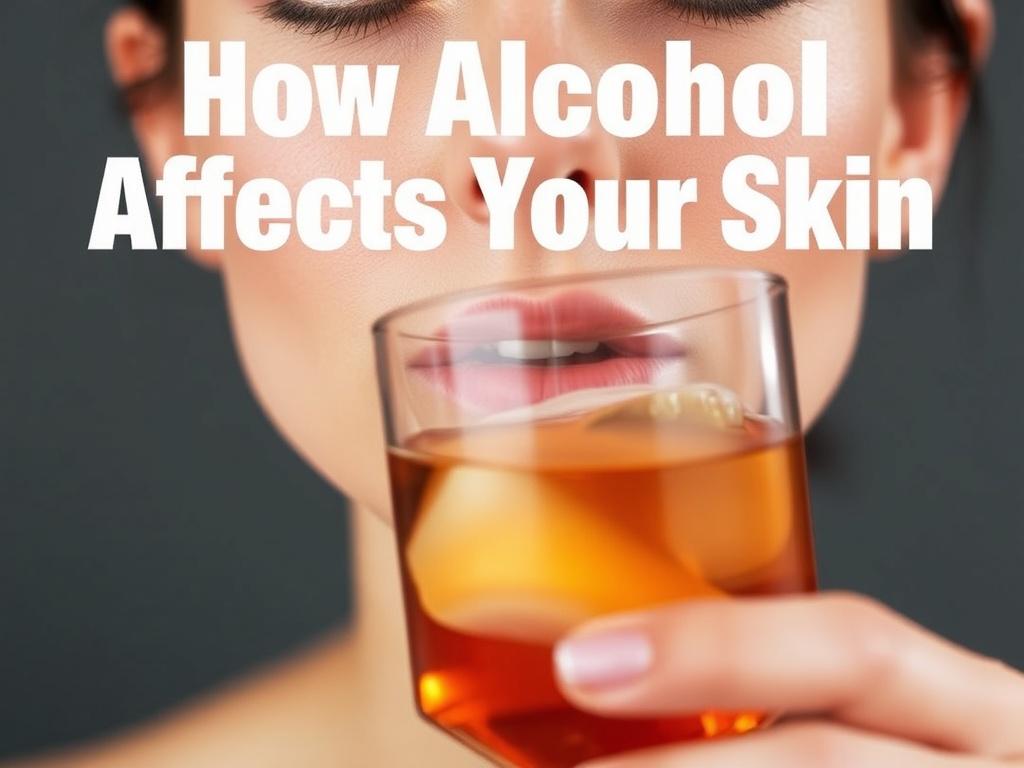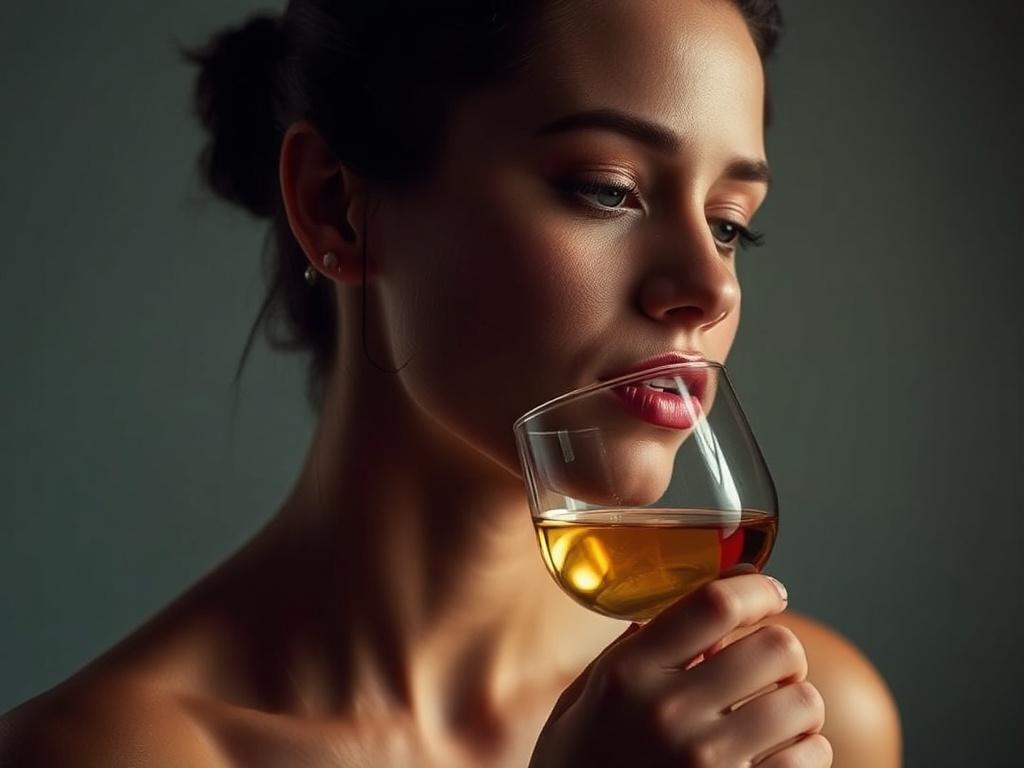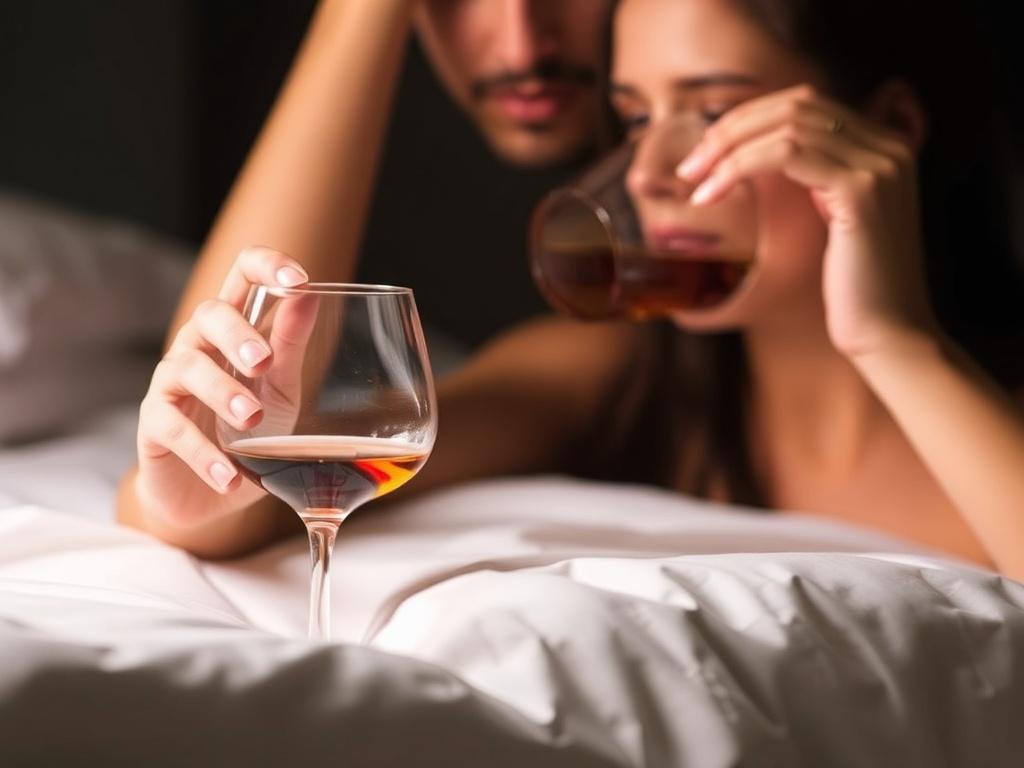Содержание статьи
- 1 What Happens to Your Skin When You Drink Alcohol?
- 2 Common Skin Issues Linked to Alcohol Consumption
- 3 Understanding the Different Types of Alcohol and Their Impact on Skin
- 4 How to Protect Your Skin Against Alcohol Damage
- 5 The Link Between Alcohol and Specific Skin Conditions
- 6 Alcohol, Sleep, and Skin Health: A Vicious Cycle
- 7 Understanding the Long-Term Effects of Alcohol on Skin
- 8 Practical Tips to Enjoy Alcohol Without Compromising Your Skin
- 9 Conclusion
Alcohol is a part of many people’s social lives, offering relaxation, celebration, and occasional indulgence. But while a glass of wine or a cold beer might feel good in the moment, the effects of alcohol on your skin often go unnoticed until problems arise. If you’ve ever wondered why your complexion looks dull, red, or prematurely aged after a night out, understanding how alcohol affects your skin can be a game-changer. In this article, we’ll explore the science behind alcohol’s impact on your skin, revealing why moderation matters and how you can take care of your complexion even if you enjoy a drink or two.
What Happens to Your Skin When You Drink Alcohol?

When you consume alcohol, its effects ripple through your entire body—not least your skin. Alcohol is a diuretic, meaning it causes dehydration by making your body lose more water than usual. Since your skin relies heavily on proper hydration to maintain elasticity and a fresh appearance, dehydration can leave it looking tired, flaky, and dull. Have you ever noticed how the morning after a heavy night of drinking, your skin seems to lack its usual radiance? That’s dehydration at work.
But dehydration is only the tip of the iceberg. Alcohol also affects your skin on a deeper level. It causes blood vessels to dilate, which can lead to flushing or redness. This is especially common in people with sensitive skin or conditions like rosacea, which can worsen with alcohol consumption. Over time, consistent alcohol intake may also damage collagen and elastin—two vital proteins that keep your skin firm and youthful.
The Role of Inflammation and Oxidative Stress
Your skin is the largest organ in your body and acts as a frontline barrier against environmental damage. Alcohol consumption triggers inflammation in your body, which can be seen on your skin as redness, puffiness, or even acne flare-ups. This inflammatory response is a direct result of your immune system’s reaction to alcohol and its toxic byproducts such as acetaldehyde.
Moreover, alcohol increases oxidative stress by promoting the production of free radicals—unstable molecules that damage skin cells and accelerate aging. Free radicals break down collagen and elastin fibers, leading to wrinkles and sagging. Essentially, the more you drink, the more you invite premature aging to the party.
Common Skin Issues Linked to Alcohol Consumption
The effects of alcohol on your skin are not limited to dehydration or redness. There are several specific skin issues often associated with drinking. Here’s a list of some common problems caused or worsened by alcohol use:
- Dryness and Dehydration: Loss of moisture can lead to dry, flaky skin, making your complexion dull and uneven.
- Redness and Flushing: Dilated blood vessels cause a flushed appearance, especially noticeable on the cheeks, nose, and chin.
- Acne and Breakouts: Alcohol can increase oil production and inflammation, triggering acne or aggravating existing skin conditions.
- Premature Aging: Damage to collagen and elastin fibers accelerates the formation of wrinkles and fine lines.
- Rosacea Flare-Ups: Alcohol often worsens rosacea symptoms, causing facial redness and visible blood vessels.
- Swelling and Puffiness: Excess salt intake with certain alcoholic beverages, combined with dehydration, can lead to a puffy, swollen face.
- Dull Skin Tone: Impaired skin renewal and dehydration cause the skin to lose its natural glow and appear lifeless.
How Alcohol Interferes with Skin Repair and Renewal
Your skin naturally regenerates itself every day, shedding old cells and producing new ones to maintain a healthy barrier. Alcohol disrupts this process by interfering with the production of essential nutrients like vitamin A and B vitamins, both of which are crucial for skin repair. When nutrient absorption is hindered, the skin’s ability to heal from damage—including sun exposure and everyday environmental stressors—is reduced.
Additionally, alcohol reduces the effectiveness of your immune system overall, meaning your skin is less able to fight off infections and inflammation. This impaired defense mechanism can make wounds take longer to heal and amplify conditions such as eczema or psoriasis.
Understanding the Different Types of Alcohol and Their Impact on Skin
Not all alcoholic beverages affect your skin equally. Some types of alcohol have more sugar or additives, which can exacerbate skin problems. Here’s a quick breakdown in a table to help understand how different drinks compare:
| Alcohol Type | Common Skin Effects | Additional Notes |
|---|---|---|
| Beer | Can cause dehydration; bloating and puffiness from sodium | Often high in calories and additives, may worsen inflammation |
| Wine | Red wine especially linked to flushing and rosacea flare-ups | Contains histamines and tannins which can trigger skin reactions |
| Spirits (Vodka, Whiskey, Gin) | Fast absorption leads to rapid dehydration; can cause skin dryness and redness | Often consumed in mixed drinks with sugary mixers, increasing risk of acne and irritation |
| Cocktails | High sugar content can lead to increased oil production and breakouts | Sugary mixers contribute to inflammation and premature aging |
Make Choosing Your Drink Skin-Friendly
If you enjoy alcohol but want to keep your skin healthy, it pays to select your drinks carefully. Opt for lighter options like plain spirits with soda water instead of sugary cocktails. Reducing your intake of red wine if you notice skin flushing or rosacea symptoms is also wise. Ultimately, moderation and mindful choices make a big difference.
How to Protect Your Skin Against Alcohol Damage
Understanding how alcohol affects your skin is the first step, but what can you do about it? The good news is that with some proactive habits, you can minimize damage and support your skin’s health even if you drink occasionally.
Hydrate Like a Pro
Since alcohol dehydrates your body and skin, replenishing fluids is crucial. Make it a habit to drink plenty of water before, during, and after consuming alcohol. A simple rule? For every alcoholic drink, drink at least a glass of water to stay hydrated.
Boost Your Nutrient Intake
Alcohol depletes your body’s supply of important vitamins and minerals. Incorporate plenty of fresh fruits and vegetables into your diet to supply antioxidants that fight free radicals caused by alcohol. Foods rich in vitamin C, vitamin A, zinc, and B vitamins are especially helpful in supporting skin repair.
Maintain an Effective Skincare Routine
When alcohol stresses your skin, a gentle skincare routine can help reduce irritation. Use hydrating cleansers, moisturizers, and serums packed with antioxidants. Avoid harsh exfoliants or treatments immediately after drinking, as your skin will be more sensitive. Don’t forget to wear sunscreen daily; alcohol can impair your skin’s ability to recover from sun damage.
Consider Detox and Rest Days
Giving your body breaks from alcohol can help your skin reset. Designate non-drinking days to allow your skin time to rehydrate, heal, and regain its natural glow. Some people find that after several weeks of reduced drinking, their skin looks noticeably healthier.
The Link Between Alcohol and Specific Skin Conditions

Let’s delve more deeply into how alcohol interacts with certain skin problems that many people struggle with. Knowing this can help you make informed decisions about alcohol use based on your skin type and concerns.
Alcohol and Acne
Acne is often aggravated by alcohol because it increases inflammation and oil production. Sugary and sugary-mixed alcoholic drinks can spike insulin levels, leading to clogged pores and increased breakouts. If you’re prone to acne or adult acne, monitoring your alcohol intake and choosing low-sugar options can help keep flare-ups at bay.
Alcohol and Rosacea
Rosacea is a chronic skin condition characterized by redness, flushing, and visible blood vessels. Alcohol is a well-known trigger for rosacea flare-ups, particularly red wine. The histamines and other compounds in alcohol cause blood vessels to expand, leading to the classic redness associated with rosacea. People with this condition should be cautious with alcohol consumption and may want to avoid it altogether if symptoms worsen.
Alcohol and Eczema
Eczema involves skin inflammation and dryness that can be irritated by alcohol-induced dehydration and immune suppression. Alcohol may intensify itching and redness in people with eczema, making symptoms harder to control. Staying hydrated and avoiding alcohol triggers can be helpful in managing eczema symptoms.
Alcohol, Sleep, and Skin Health: A Vicious Cycle

Another important aspect to consider is the relationship between alcohol, sleep, and skin health. Alcohol can disrupt your sleep patterns, reducing the quality and quantity of restorative sleep. Since skin repair and regeneration primarily happen during deep sleep, poor sleep expands the damage caused by alcohol.
Lack of sleep shows up in your skin as dark circles, puffiness, dullness, and premature aging. So when alcohol interferes with your rest, it not only damages your skin directly but also deprives it of the time it needs to heal and renew.
Understanding the Long-Term Effects of Alcohol on Skin
If occasional drinking is bad, consistent heavy drinking certainly accelerates skin problems. Over time, the following long-term effects become more noticeable:
- Chronic Redness: Persistent flushing and broken capillaries create a permanently blotchy complexion.
- Premature Aging: Wrinkles, fine lines, and sagging skin develop earlier than normal.
- Thinning Skin: Prolonged alcohol use can cause the skin to thin, increasing vulnerability to injury.
- Discoloration: Uneven skin tone and dark circles worsen with long-term alcohol intake.
- Higher Risk of Skin Infections and Diseases: Impaired immunity elevates the likelihood of infections and complications such as skin cancers.
Who’s Most at Risk?
Everyone’s skin reacts differently to alcohol based on genetics, existing skin conditions, lifestyle factors, and how much they drink. People with naturally sensitive skin, rosacea, or autoimmune skin conditions typically experience more severe impacts. Older adults also see quicker aging effects because their skin already loses collagen and elasticity with age.
Practical Tips to Enjoy Alcohol Without Compromising Your Skin
You might be thinking, “Is it possible to enjoy alcohol and still keep my skin healthy?” The answer is yes — with some smart strategies. Here are practical ideas to help you balance enjoyment with skin care:
- Choose Drinks Wisely: Prefer low-sugar spirits with soda water or light beer over cocktails loaded with sugar and additives.
- Pace Yourself: Drinking slowly allows your body more time to process alcohol and reduces skin stress.
- Hydrate Constantly: Pair every alcoholic drink with water to prevent dehydration.
- Eat Before and During: Having food in your stomach slows alcohol absorption and reduces its impact on your skin.
- Skincare Support: Use antioxidant-rich skincare and nourish your skin with vitamins from a healthy diet.
- Schedule Detox Days: Designate alcohol-free days to allow your skin to recover.
Conclusion
Understanding how alcohol affects your skin is key to making choices that support both your social life and your complexion. From causing dehydration and redness to triggering inflammation and accelerating aging, alcohol’s effects on skin can be wide-ranging and significant. However, by recognizing the signs, moderating intake, staying hydrated, nourishing your body, and maintaining a thoughtful skincare routine, you can mitigate much of the damage. Remember, your skin reflects your overall health and lifestyle, and with a bit of care and awareness, it’s possible to enjoy alcohol reasonably while keeping your skin glowing and youthful for years to come.

